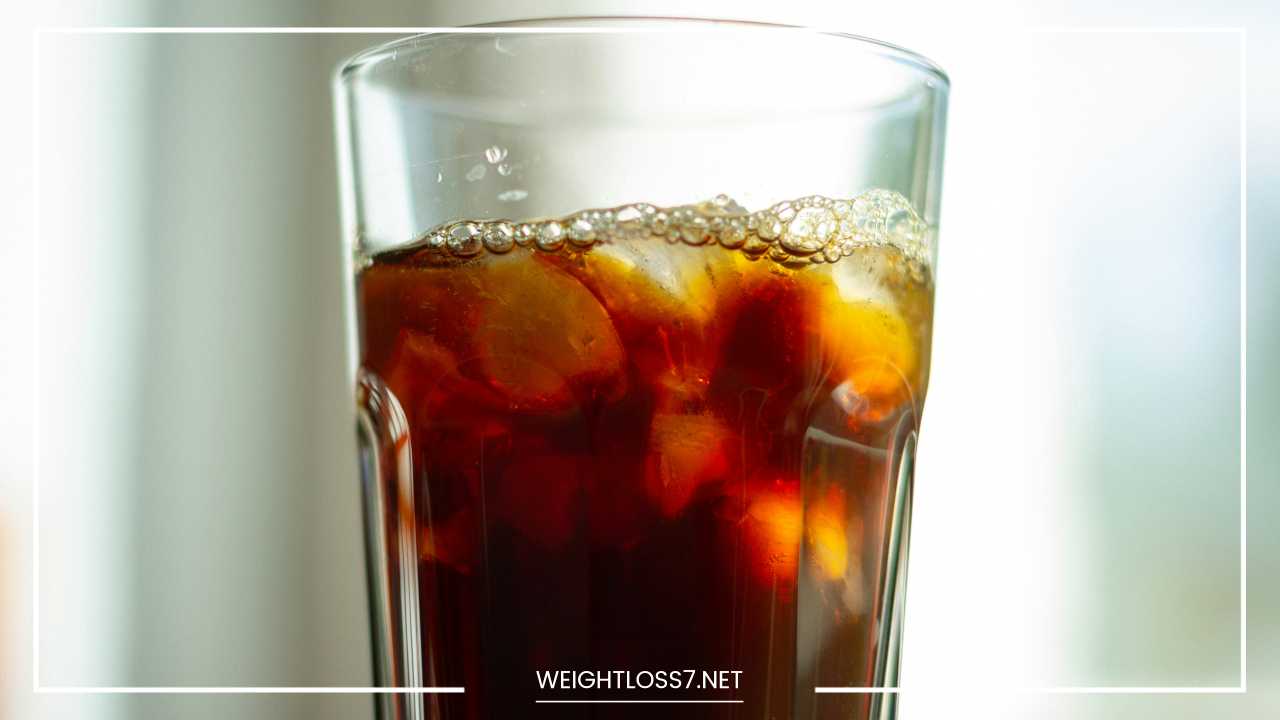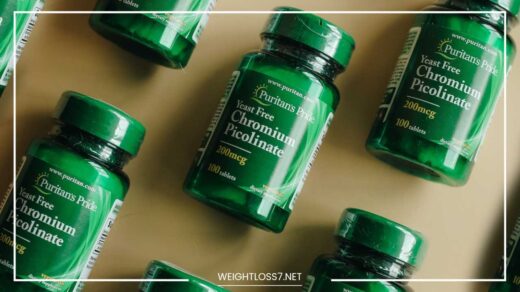Soda: The Fizzy Downside to Health

Soda
Soda: The Fizzy Downside to a Healthy Lifestyle
Soda, that ubiquitous beverage enjoyed around the world, comes in a dazzling array of flavors and colors. It’s a staple at parties, movie theaters, and barbecues. But behind the refreshing fizz lies a not-so-secret truth – soda can wreak havoc on your health.
This blog post dives deep into the world of soda, exploring its ingredients, health implications, and explores some healthier alternatives to quench your thirst.
The Sweet Deception: Unpacking the Ingredients
Understanding what’s inside that can of soda is crucial. Here’s a breakdown of the key ingredients and their potential downsides:
-
Sugar: The main culprit. Regular sodas are loaded with sugar, in the form of high fructose corn syrup or sucrose. This excessive sugar intake contributes to weight gain, obesity, and a host of other health problems. The American Heart Association (AHA) recommends limiting added sugars to 25 grams (6 teaspoons) for women and 36 grams (9 teaspoons) for men daily. A single can of soda can easily exceed this recommendation.
-
Carbonated Water: Gives soda its signature fizz. While not inherently harmful, carbonation can irritate the stomach, particularly for those with digestive issues, and contribute to bloating. Some studies suggest it may also interfere with calcium absorption.
-
Artificial Sweeteners: Often used in diet sodas, these sweeteners may have their own set of health concerns. While they are calorie-free, some studies suggest links to altered gut bacteria and metabolic issues. Additionally, there’s some evidence that artificial sweeteners may trick the body into craving more sugar, leading to increased consumption of sugary foods overall.
-
Acids: Citric and phosphoric acids add tartness and tang to soda but can erode tooth enamel, leading to cavities. Phosphoric acid has also been linked to decreased bone mineral density.
-
Caffeine: Found in many colas, caffeine provides a temporary energy boost but can lead to jitters, anxiety, and disrupted sleep patterns, especially in high doses. It can also be addictive.
-
Flavorings and Colors: Artificial flavors and colors add variety but raise concerns about potential health risks. Some studies suggest links to hyperactivity in children and may contribute to headaches or allergic reactions in some individuals.
The Bitter Truth: Health Consequences of Soda Consumption
The high sugar content and other ingredients in soda can have a significant impact on your health. Here’s a closer look at the potential consequences:
-
Weight Gain and Obesity: The sugar in soda provides empty calories, contributing to weight gain and increasing the risk of obesity. Excess weight puts a strain on your entire body and increases the risk of numerous chronic diseases.
-
Type 2 Diabetes: Excessive sugar intake can overwhelm your body’s ability to regulate blood sugar, raising the risk of developing type 2 diabetes. Chronically high blood sugar levels can damage nerves and organs throughout the body.
-
Heart Disease: Soda consumption is linked to an increased risk of heart disease by contributing to factors like high blood pressure, unhealthy cholesterol levels, and inflammation. Sugary drinks can also lead to the development of fatty liver disease, which further increases the risk of heart problems.
-
Metabolic Syndrome: This cluster of conditions, including high blood pressure, unhealthy cholesterol, excess belly fat, and high blood sugar, is linked to excessive soda intake. Metabolic syndrome significantly increases the risk of developing heart disease, stroke, and type 2 diabetes.
-
Tooth Decay: The sugar and acids in soda erode tooth enamel, leading to cavities and tooth decay. Left untreated, cavities can cause pain, infection, and even tooth loss.
-
Bone Health: Studies suggest that high soda consumption, particularly colas, may be linked to lower bone mineral density and an increased risk of osteoporosis. This is likely due to a combination of factors, including the presence of phosphoric acid and the negative impact of excess sugar on calcium absorption.
-
Kidney Disease: Excessive soda intake can put a strain on your kidneys, potentially increasing the risk of kidney disease. The high sugar content and artificial ingredients can make it harder for your kidneys to filter waste products from your blood.
-
Gout: Studies suggest a link between sugary soda consumption and gout, a type of arthritis that causes sudden and severe joint pain. It’s believed that the high fructose corn syrup in soda may contribute to increased uric acid levels in the blood, a major trigger for gout attacks.
Beyond Physical Health: The Mental Impact of Soda
The effects of soda go beyond physical health. The high sugar content can lead to a blood sugar crash, impacting mood, energy levels, and cognitive function. This can lead to feelings of fatigue, irritability, and difficulty concentrating.
The caffeine in sodas, particularly for those sensitive to it, can contribute to anxiety, restlessness, and difficulty sleeping.
This can disrupt your sleep cycle and leave you feeling tired and foggy the next day. Chronic sleep deprivation can further worsen mood and cognitive function, creating a vicious cycle.
Soda and Children’s Health: A Cause for Concern
Children are especially vulnerable to the negative effects of soda. Their bodies are still developing, and excessive sugar intake can have a significant impact on their health and well-being. Here’s a breakdown of the specific risks for children:
-
Childhood obesity: A major concern with long-term health consequences. Excess weight in childhood increases the risk of developing obesity later in life, which is linked to numerous health problems.
-
Type 2 diabetes: The risk of developing type 2 diabetes increases significantly with high soda consumption. Early exposure to sugary drinks can disrupt insulin regulation and set the stage for future health problems.
-
Dental problems: Children’s developing teeth are particularly susceptible to cavities from sugary drinks. Regular soda consumption can lead to painful cavities and even tooth decay.
-
Behavior problems: The sugar rush and crash cycle from soda can contribute to hyperactivity and difficulty concentrating. This can make it challenging for children to focus in school and can lead to behavioral issues.
Kicking the Habit: Strategies for Reducing Soda Consumption
Soda doesn’t have to be a permanent fixture in your diet. Here are some practical tips to help you reduce your soda intake:
- Set Realistic Goals: Don’t try to go cold turkey overnight. Start by setting small, achievable goals, like limiting yourself to one soda per day or every other day. Gradually reduce your intake over time.
- Find Healthy Alternatives: Explore the world of sparkling water, flavored seltzer, and homemade fruit-infused water. Experiment with different flavors and find options you enjoy.
- Pair with Food: Drinking soda with food can help slow down the absorption of sugar into your bloodstream, minimizing the blood sugar spike and crash.
- Read Food Labels: Be mindful of hidden sugars in other beverages like fruit juices and sports drinks. Choose unsweetened varieties whenever possible.
- Stay Hydrated: Make water your go-to beverage. Carry a reusable water bottle with you and sip on it throughout the day to stay hydrated and curb cravings for sugary drinks.
- Reward Yourself: Celebrate your progress! When you reach a milestone in reducing your soda intake, reward yourself with something non-food related, like a new book or activity you enjoy.
The Power of Choice: Embracing a Healthier Lifestyle
Making healthy choices about what you drink is an essential part of maintaining a healthy lifestyle. By understanding the negative effects of soda and exploring delicious alternatives, you can take control of your health and well-being.
Remember, small changes can lead to big results. Start by making one swap today – replace that can of soda with a glass of water or a sparkling water with a squeeze of fruit. Your body will thank you for it!
Additional Considerations:
- The Role of Artificial Sweeteners: While some may view diet sodas as a healthier option, the research on artificial sweeteners is ongoing. There is no clear consensus on their long-term health effects. It’s best to consume them in moderation and prioritize water and unsweetened beverages.
- Natural vs. Artificial Flavors: Natural flavors are generally considered preferable to artificial flavors, but both can be present in sodas. Look for brands that use minimal ingredients and disclose their flavor sources clearly.
- Portion Control: Even healthy beverages can be consumed in excess. Be mindful of portion sizes and avoid sugary drinks altogether on most days.
Beyond the Can: The Environmental Impact of Soda
While the health effects of soda are significant, it’s important to consider its environmental impact as well. Soda production has a footprint that stretches far beyond the corner store shelf. Here’s a glimpse into the environmental cost of our fizzy habit:
-
Water Consumption: The production of a single can of soda requires a significant amount of water. Estimates suggest it can take anywhere from 30 to 100 gallons of water to produce just one 12-ounce can. In areas facing water scarcity, this high water usage can put a strain on vital resources.
-
Sugarcane and Corn Production: The high fructose corn syrup and sugar used in soda production rely on intensive agriculture practices. These practices can contribute to deforestation, soil erosion, and water pollution from fertilizers and pesticides.
-
Plastic Packaging: The vast majority of soda is sold in plastic bottles. Plastic production relies on fossil fuels and contributes to greenhouse gas emissions. Additionally, plastic waste is a major environmental concern, with millions of tons ending up in landfills and oceans each year.
-
Energy Consumption: The manufacturing, transportation, and refrigeration of soda require significant amounts of energy. This reliance on fossil fuels contributes to air pollution and climate change.
Making a Sustainable Choice:
By reducing your soda consumption, you’re not just doing your body a favor, you’re also making a positive impact on the environment. Here are some ways to embrace a more sustainable beverage lifestyle:
- Embrace Reusable Bottles: Ditch the disposable plastic bottles and invest in a reusable water bottle. This will significantly reduce your plastic waste footprint.
- Support Local Brands: Opt for soda brands that use local ingredients and source their water responsibly. This can help minimize transportation emissions and support local economies.
- Explore Refillable Options: Some beverage companies offer refillable glass bottles or kegs. This can be a more sustainable option compared to single-use plastic bottles.
- Think Beyond Bottles: Consider alternatives like boxed water or canned sparkling water. These packaging options often have a lower environmental impact compared to plastic bottles.
Final Word: A Holistic Approach to Health and Wellness
Taking a holistic approach to health and wellness means considering not just the physical effects of what you consume, but also the environmental impact of your choices.
By making informed decisions about the beverages you drink, you can prioritize your health while contributing to a more sustainable future. Remember, every small change counts!
By taking control of your beverage choices and embracing a more sustainable lifestyle, you can embark on a journey towards a healthier, happier you and a healthier planet. Remember, small changes can have a big impact!

















